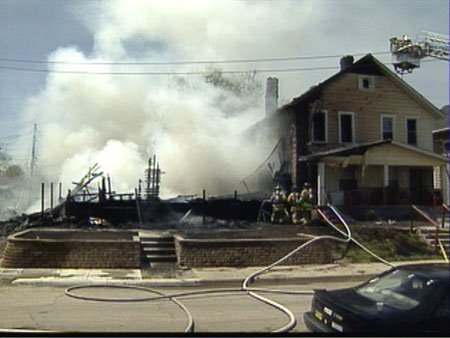Friday, August 24, 2007
Liability Insurance: The Most Overlooked Piece of the Financial Planning Process?
Delaware Insurance Advisors
Liability insurance – you probably have it now and don’t give it a second thought. You see, it’s part of your car insurance policy – the coverage that protects you if you are found liable for causing injuries or damaging property. It’s also included with most home policies – just in case someone slips and falls at your house or Fido decides to become too aggressive and bite someone.
If you own a business, your business liability insurance protects you from things such as customer’s accidents on your property, your negligent activities or your faulty products (i.e. food poisoning).
How can this important protection so often be “overlooked”? Very simple… you have a life. Let’s face it, you’d rather plan your vacation than bring out and dust off the car, home and business insurance policies. You know they haven’t been looked at in years…and you’re probably thinking “if it isn’t broke, why fix it?”
Here’s why you should pay close attention: everything you have earned could be lost because of one careless accident. What if you are briefly distracted and don’t allow enough distance between you and the car in front of you. Or, what if your employee fails to clean up a spill at your business?
Don’t take your protection and security for granted. Get those policies out and make sure your liability protection equals or exceeds your assets. Your assets (both personal and business) are those that you have earned, worked hard for or even inherited. So, why risk them?
The purpose of liability insurance is to protect your assets from people who want to take them away from you due to your negligence. You want to ensure that you and your family can maintain your lifestyle! Of course, there are always exceptions. Before making important decisions, be sure to work with the help of an experienced, credentialed and licensed insurance advisor.
Contact Stephen at 740-369-1040 or sevanko@colinsadv.com
Thursday, August 23, 2007
Track Down a Life Insurance Policy
A - Unfortunately, insurance policies are considered private transactions between an insured and the insurer. There is no single repository of life insurance policies that you can search. I'll touch on one service that could help you track down the policy if it's been purchased in the last 15 years or so, but you're really going to have to put on your CSI hat for this one. Most life insurance policies have premiums that need to be paid in order to keep the policy in force. Start any search by looking for the money trail.
First how old was the person who died? Did they die during their working years or after retirement?
For younger working people:
- Inquire at their place of work, perhaps they had a group policy or payroll deducted premiums, examine pay stubs and question deductions.
- Search check registers and bank statements for cancelled checks or direct withdrawals.
- Check with the Financial Advisors or the Property & Casualty agency that handled other investments or lines of business for the deceased; sometimes they keep notes of when they discuss life insurance issues with their insureds.
For older people, the insurance products sold 25 - 30 years ago were a little different than what is popular today. Older people would have been more likely to purchase permanent Whole Life(WL) policies that could stay in force until age 100, give or take a few years. There were a few flavors of WL sold back in the day, some they paid until a pre-determined age (usually 60) other types they paid premiums their entire life. Since WL builds a cash value, the insured had a option to:
- Pay premiums, keep policy in force.
- Skip premiums and the policy will fund itself from cash value until that runs out.
- Cancel policy and keep cash values.
Try to remember any discussion you've had regarding life insurance you had with the deceased. Ask their friends or neighbors if they ever had an insurance conversation with the deceased. This may give hints on where to look. Also:
- Check registers, SS or pension checks(for deductions) savings & investment accounts for withdraws.
- Check tax returns going back as far as possible (cashing a WL policy is a taxable event)
- Rack you brains for mention of a salesman or insurance company. Search orphaned policies on https://external-apps.naic.org/orphanedpolicy/ ; if the company merged or was purchased by another company, this link may help.
- Check unclaimed property office of the state. As a last resort, insurers pay death benefits to the state office if beneficiaries can't be found.
Ernesto
Thursday, August 16, 2007
Insurance for Rehab projects
A - You've got a few options; if we're talking residential houses (1-4 units) go to Foremost.com and do an agent search; Foremost will do vacant property in rehab up to two years. The agent who handles your P&C may have another company they use. Make sure any policy in endorsed for Vandalism (VMM) and Liability. If Liability is not available, you may be able to extend Liability from your Homeowners policy. Make sure the coverage is in the name of the person(s) or entity that purchased the policy.
If you're a real contractor (with insurance, bonding, licencing) then your P&C guy may have access to a builders risk program that allows vacant property under rehab.
Each program will have underwriting guidelines and restrictions you'll have to follow. Good Luck
Wednesday, August 1, 2007
Insuring old buildings
A -- You don't have a problem, you have TWO problems: AGE and USAGE.
The first problem with older buildings is dealing with replacement cost. Most of them cannot be re-built, so either actual cash value or functional replacement is necessary. If a insurer only sells a replacement cost policy, you're ineligable.
The other AGE related problems can be dealt with by pointing out all updates done in the past 10-15 years:
- Electric - modern three strand wiring with circuit breakers all up to code
- Smoke & security alarms and other safety features inspected and up to code
- Updated plumbing
- Updated HVAC
- Updated Roof
- General good repair of entire building, surrounding area sidewalks
- Sprinklers ? This would be a plus.
Show that these issues have been addressed and an insurer will more likely think of the building as a rehab, not a piece of history.
The USAGE problem is a little trickier. Old buildings are high risk, ceramic studios (if MAKING ceramics is involved ie ovens, heat, flames; retail stores no problem) are high risk, mixed residential and commercial are high risk. Trying to get all three together AND getting good coverage for all will be difficult at best.
Try breaking down the liability (as a disclaimer, I am not an attorney and laws vary from place to place, please consult the appropriate legal council).
- Establish an LLC to own and manage the building
- Establish an LLC for the ceramics business then rent from the building LLC
- Rent the top two floors from the building LLC as residential space (maybe buy as a Condo?)
Now get insurance coverage:
- Commercial building general liability (GL) and property coverage for the first LLC
- Business GL with contents or business owners policy (BOP) for ceramics business
- Renters/Condo coverage with endorsement for improvements to cover personal property
Ideally you get all three from the same company; this may be difficult, but possible. The three coverages are more comprehensive than one combined policy, and easier to place. Not cheap, but the best way to get insurance.
Ernesto


